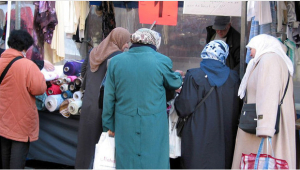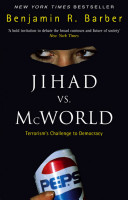We saw at the time of writing the novel a global neoliberal earnings model beneficial mainly for the rich, by generating more profit increasing their wealth, while the social and cultural implications did not droop purely positive on society as a whole. In a future crisis the motto was: “never waste a good crisis”: the opportunity was used to once again draw the neoliberal agenda further.
Could there still be major shift, a tilt?
Cultural context
 At the time of writing the novel, there was increasing pressure on society by a new wave of migration of guest workers and regugees. This resulted in conjunction with rising unemployment and a widening gap between rich and poor into polarization within society, leading again, after a brief period of improvement, to an enhanced us versus them thinking.
At the time of writing the novel, there was increasing pressure on society by a new wave of migration of guest workers and regugees. This resulted in conjunction with rising unemployment and a widening gap between rich and poor into polarization within society, leading again, after a brief period of improvement, to an enhanced us versus them thinking.
 “Democracy is a direct response to the resentments and spiritual unease of the people for whom the trivialization and homogenization of values is an attack on cultural diversity and spiritual and moral beliefs. But it also provides an answer to the complaints of the people who are plunged into poverty and desperation caused by unregulated global markets and unrestrained capitalism, because it has wrested from the humanizing restrictions democratic nation states had imposed on us (…) If we cannot offer an alternative to the struggle between Jihad vs. McWorld, then the era that is now before us – post-communist, post-industrial, post-national and sectarian nonetheless, fearful and intolerant –will be a hopeless post-democratic era (…) As the political totalitarianism of the fascist and communist world at that time against a terrible toll in human lives, tried to subject all economic, social and cultural activities to requirements of an overarching state apparatus, it seems that in economic totalitarianism of an unbridled market economy tries to make politics, society and her culture subservient to the demands of an overarching market. What price we pay for this is not clear yet.” Benjamin R. Barber.
“Democracy is a direct response to the resentments and spiritual unease of the people for whom the trivialization and homogenization of values is an attack on cultural diversity and spiritual and moral beliefs. But it also provides an answer to the complaints of the people who are plunged into poverty and desperation caused by unregulated global markets and unrestrained capitalism, because it has wrested from the humanizing restrictions democratic nation states had imposed on us (…) If we cannot offer an alternative to the struggle between Jihad vs. McWorld, then the era that is now before us – post-communist, post-industrial, post-national and sectarian nonetheless, fearful and intolerant –will be a hopeless post-democratic era (…) As the political totalitarianism of the fascist and communist world at that time against a terrible toll in human lives, tried to subject all economic, social and cultural activities to requirements of an overarching state apparatus, it seems that in economic totalitarianism of an unbridled market economy tries to make politics, society and her culture subservient to the demands of an overarching market. What price we pay for this is not clear yet.” Benjamin R. Barber.
Psychosocial context
 To understand the social context at the time of writing the novel we can simply listen to Paul Verhaeghe:
To understand the social context at the time of writing the novel we can simply listen to Paul Verhaeghe:
“Today we experienced the negative effects of the neoliberal model. Not only in the waiting rooms of psychologists, but equally in our collective state of mind. We have never had so much choice. But actually, that freedom is an illusion. “The message is: you are responsible for your own success and failure. If you just put enough effort into it, you will make it. But if it fails, it’s your own fault. The result is that more and more people suffer humiliation, guilt and shame. As eye-opener I tell my students: the first important choice you have to make in life is that of your parents. If you choose wrong there, you have a problem. Not to say there are many things that you do not choose. Your surroundings and descent are particularly determinant. And yet we claim that your success is entirely in your own hands. Children also think so. Do you know that the principal term of abuse in the playground today is ‘loser’? We all want to be winners. But that isn’t realistic of course. From eight to ten years children begins to drop out. They can’t ‘make’it’. And very quickly then they get a label. To say it with witticism: We have two kinds of children, gifted and deranged. Where did the middle class go? The objectives are explicitly defined: all students should be entrepreneurs. They should consider themselves as business, and develop skills to increase their market value. That would not be bad in itself, except that the individual will be filled competitively. You have to get it at the expense of the other. Social ties and solidarity are systematically breached. It is not meant, but it is a side effect of the competency endeavor. And then we are surprised that young people are selfish and materialistic. That they have unrealistic expectations. But we’ve made them so. Neoliberalism is miles drifted from the liberalism that presupposes autonomy of the individual. Neoliberalism is a blind pursuit of efficiency to pour everything into numbers. Oddly: one expresses quality in quantity. While that’s like an oxymoron. I learned of the Scottish moral philosopher Alasdair MacIntyre: the new moral standard is ‘effectiveness’. But we actually mean ‘profit’. We are not interested in better, but more. That has implications for the way we work. We need to meet output targets defined top-down. The employee has hardly anything to say about it since then. We have responsibility without power. There are formats, processes, protocols that capture to the point what to do and how. Autonomy and creativity fall off. And in no time it cannot bother us anymore. We dispose of our labor.”
The interest of the Belgian professor of clinical psychology and psychoanalysis Paul Verhaeghe is paid to the relationship between social change, identity and mental disorders. This subject came to his attention by the growing number of people struggling with anxiety and depression. Verhaeghe began to suspect that this is not an individual but a social problem. The survival of the fittest is perhaps a good theory on paper, but when it is applied to the human reality it turns disastrous. The world of the self-made man is hard and lonely. In a society in which you are responsible for your success, it’s your own fault if you achieve nothing. There is no mercy for losers. “Self-esteem disappears when no one needs you.”